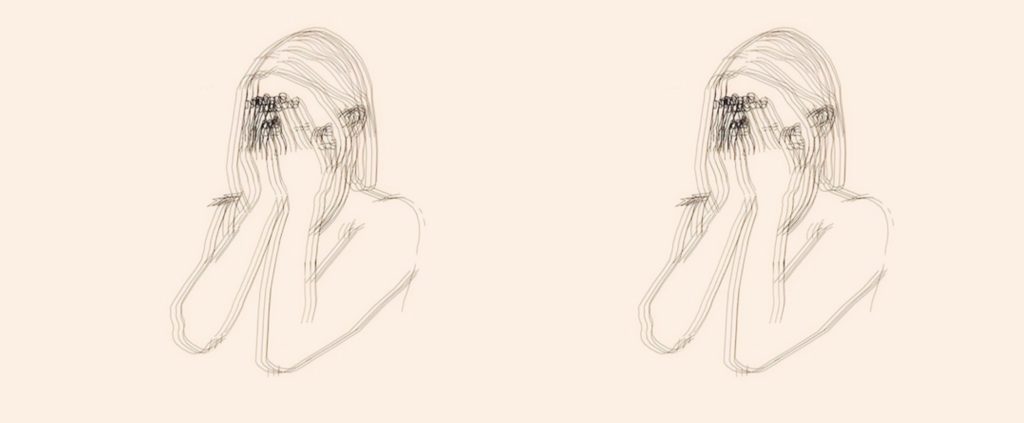The things women fear impact more than just the individuals experiencing them.
In the near future, I’ll have a mammogram to follow up on a “mysterious dark spot” that was too small to identify months ago. The hope is that the spot has gone away on its own or at least not changed. But in the meantime, there’s the fear.
It’s not something I think about daily, but when I do think of it, I imagine the worst: tests, procedures, statistics. And I’ve realized that my life as a woman has been shaped by fear. These are not phobias or uncontrollable anxiety, nor is it a mental health problem. I’m talking about the undercurrent of fear that is part of the whole experience of being a woman.
These are fears that, broadly speaking, are unique to women (though I know there are exceptions). Women around the world experience them daily– some much more than others. These are the fears that make us alert, smart, and strong.
Young girls in the West are notoriously fearless. They equal or triumph over young boys at sports, school, and socializing. With a society that, on paper at least, tells them they can do anything, they are encouraged to be fearless and strong. Then comes adolescence.
When our bodies change, our relationship with the world around us changes radically, too. Many young girls find themselves being sexually harassed or worse by grown men and boys their own age. Even if you survived your teens without harassment or assault, the odds are good that you had friends who experienced both. I remember the friend I had at 14 who was raped by her stepfather and the friend at 16 who spent her math classes trying to avoid the innuendo, leers, and blown kisses from her 60-something teacher. Women’s fears start before we can defend ourselves.
I remember being 13 and trying to dodge the older teen boy who rode on my bus and spent every afternoon verbally assaulting and humiliating my changing body and my innocence. Or the times in my late teens when I was cornered and groped without my consent.
As we enter our late teens and early twenties, we grow into ourselves. Women’s fears start to look less daunting. We learn to avoid, deflect, or defend against men when they threaten us. We grow, we learn, we become lovers and (for many of us), mothers. We watch our own mothers and grandmothers fight age and illness.
If we choose motherhood, we learn more fears. During pregnancy and childbirth, we fear for ourselves and our babies. Many of us have experienced the time-stopping fear of a child in the NICU, tiny arms and legs hooked up to tubes and machines.
And then, as we approach middle age, the things that women fear shift. Fears of losing our looks, losing our relevance, losing our lovers or husbands to younger women. We spend millions on miracle creams and hair color, trying to regain or retain the beauty we had in our 20s. An entire industry exists– and thrives- because we are terrified of aging.
But beyond the surface fears is something greater: the knowledge that the parts of our bodies that make us women, the parts that have attracted partners and served us as lovers and mothers, might one day try to kill us. Every part of our body that is “female” can turn on us in a heartbeat. We subject ourselves to painful and invasive tests, year after year, just so we can know whether or not this is happening. I don’t blame anyone for this; it’s just biology. But it’s part of our lives and feeds women’s fear.
The issues women fear are not a personal problem; they are a societal problem. In places at home and abroad where women live in constant fear– of violence, rape, war, and murder– the society around them struggles, economically and politically. There is an established link between the quality of women’s lives and the economic prosperity of the area in which they live.
So our fears matter, just as our lives matter, because it’s not just about us. They matter because our bodies and our minds can change– have changed– the world for better, and the stronger we are, the stronger society is.
The things women fear hold everyone back.
This is why it matters how those in power talk about our bodies and our worth. Why we need to understand rape culture and how it affects our lives. Why we need to recognize that women and children are exploited through sex trafficking and child marriage, even in this country, and fight against it. Why we need to work harder to teach our daughters to be strong and our sons to be gentle.
Our fears have made us alert to the world around us; they’ve made us fight for ourselves and others with a fierceness we never knew we had. A favorite Bible verse says, “Perfect love casts out fear.” You don’t have to be religious to recognize that love is the opposite of fear. When we talk about the things women fear with other women, we find understanding friends, sympathetic mothers and wise grandmothers.
Whatever happens with my health, I know this: my fears may shape me. But they don’t define me.
Category: Life ChangesTags: aging









